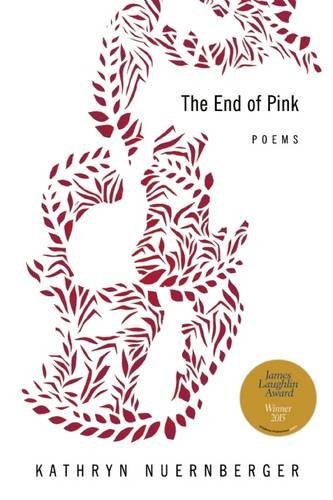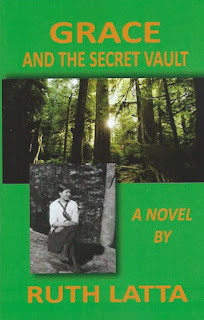 Signs speak, horror rises through the floorboards, Hedge-Triffids surround the houses, and children poke sticks at dead possums. There is everywhere a clash between life and death; decay and renewal. Though Goodbye, Cruel explores painful places in a way that cuts deeply, ultimately the work is affirmative, moving back and forth into the particular and outwards into the universal. Smith does an exceptional job of bridging the gap between the absurd, the tragic and the domestic, turning it all into something tender and sublime.
Signs speak, horror rises through the floorboards, Hedge-Triffids surround the houses, and children poke sticks at dead possums. There is everywhere a clash between life and death; decay and renewal. Though Goodbye, Cruel explores painful places in a way that cuts deeply, ultimately the work is affirmative, moving back and forth into the particular and outwards into the universal. Smith does an exceptional job of bridging the gap between the absurd, the tragic and the domestic, turning it all into something tender and sublime.
A review of Life in Suspension by Hélène Cardona
 There is something instinctual here, with freedom at the base. Perhaps this is why Cardona features animals in her poetry. They remind us that we too are instinctual and that this part of us can be in motion more often if less constrained by the mind. But we must not move away too quickly from the mind. Imagination lives there. This lesson, too, is in Cardona’s work, as the poet is “gardener of memories” (Ouranoupolis Pantoum 45).
There is something instinctual here, with freedom at the base. Perhaps this is why Cardona features animals in her poetry. They remind us that we too are instinctual and that this part of us can be in motion more often if less constrained by the mind. But we must not move away too quickly from the mind. Imagination lives there. This lesson, too, is in Cardona’s work, as the poet is “gardener of memories” (Ouranoupolis Pantoum 45).
A review of Waiting by Philip Salom
 This is the human condition: oddly shapen, oddly matched, solitary, inter-dependent, vulnerable, and always waiting for something to change. It’s repulsive and loveable all at once. Waiting is critically important – a novel that tells little and shows much, leaving its readers full of fresh insight.
This is the human condition: oddly shapen, oddly matched, solitary, inter-dependent, vulnerable, and always waiting for something to change. It’s repulsive and loveable all at once. Waiting is critically important – a novel that tells little and shows much, leaving its readers full of fresh insight.
A review of All I Want To Do Is Live by Trace Ramsey
 It seems to me that Ramsey describes the timeless effects of our breaths mingling with the air, our trembling embrace of the universe. How could these not stretch beyond our present reality? His compulsion to bring forth life, in children as well as words, marks him as one of us, his frustrating circumstances as another layer of humanity’s story.
It seems to me that Ramsey describes the timeless effects of our breaths mingling with the air, our trembling embrace of the universe. How could these not stretch beyond our present reality? His compulsion to bring forth life, in children as well as words, marks him as one of us, his frustrating circumstances as another layer of humanity’s story.
A review of How To Murder Your Life by Cat Marnell
 Some readers may claim that the memoir is about a privileged girl getting high all the time. But her brutal honesty and writing style about her not-so-glamorous experiences – going to rehab, struggling with bulimia, her reliance on stimulants – shows that there’s merit to this memoir. She’s not a bad writer, she’s just creative in expressing herself and conveying it to me. It doesn’t matter to me that she’s not following conventional grammar and syntax – she’s found a medium that works for her.
Some readers may claim that the memoir is about a privileged girl getting high all the time. But her brutal honesty and writing style about her not-so-glamorous experiences – going to rehab, struggling with bulimia, her reliance on stimulants – shows that there’s merit to this memoir. She’s not a bad writer, she’s just creative in expressing herself and conveying it to me. It doesn’t matter to me that she’s not following conventional grammar and syntax – she’s found a medium that works for her.
As If We Were Here Already: A review of Are We Here Yet? Questions + Answers + Drawings by Aevi
 I believe that it is this shift and the accompanying struggle that produced the magical disjuncture that characterizes Are We Here Yet? In other words, the book documents the four-and-a-half-year old boy’s own process of constantly reading what he wrote and trying to identify himself in what he read. It is in this sense that Are We Here Yet? is a book about the act of writing and reading books. It is a book that could only be written by a child, to be read by “children” of any age—those readers who have not yet learned to stop asking questions.
I believe that it is this shift and the accompanying struggle that produced the magical disjuncture that characterizes Are We Here Yet? In other words, the book documents the four-and-a-half-year old boy’s own process of constantly reading what he wrote and trying to identify himself in what he read. It is in this sense that Are We Here Yet? is a book about the act of writing and reading books. It is a book that could only be written by a child, to be read by “children” of any age—those readers who have not yet learned to stop asking questions.
A review of Peregrine Island by Diane B. Saxton
 Weather plays a profound role in the novel; it is almost a character. Fog, dark clouds and storms set a mood, suggesting that the Peregrines are subject to forces beyond their control. Young Peda, the family member most in tune with nature, has a strong need for friendship and a belief in magic that lead to a positive outcome for her family members.
Weather plays a profound role in the novel; it is almost a character. Fog, dark clouds and storms set a mood, suggesting that the Peregrines are subject to forces beyond their control. Young Peda, the family member most in tune with nature, has a strong need for friendship and a belief in magic that lead to a positive outcome for her family members.
A Review of The End of Pink by Kathryn Nuernberger
 Nuernberger’s unique understanding of her world illustrated in her work is a blend of the realistic and the fantastical in each of her characters and poems. It is Nuernberger’s outside-the-box perspective that is so striking and profound for a reader in The End of Pink.
Nuernberger’s unique understanding of her world illustrated in her work is a blend of the realistic and the fantastical in each of her characters and poems. It is Nuernberger’s outside-the-box perspective that is so striking and profound for a reader in The End of Pink.
A review of Grace and the Secret Vault by Ruth Latta
 Latta tells this story in a fluid, fast-paced and conversational way, seamlessly weaving together the daily details of life in the British Columbia of a century ago with the book’s overarching political narrative. The characters’ dialogue is conveyed convincingly in the lexicon of the day, but the emotional pull of the story is timeless. And despite its subject matter, the author avoids propagandizing.
Latta tells this story in a fluid, fast-paced and conversational way, seamlessly weaving together the daily details of life in the British Columbia of a century ago with the book’s overarching political narrative. The characters’ dialogue is conveyed convincingly in the lexicon of the day, but the emotional pull of the story is timeless. And despite its subject matter, the author avoids propagandizing.
A review of Dark Convicts by Judy Johnson
 The story itself is a fascinating one with themes very relevant to modern readers: the impact of colonisation, racism, cruelty and social inequality, as well as love, hunger, and the desire for meaning and self-actualisation. Johnson is a natural storyteller, providing narrative context in between each of the poems. However the real heart of the collection is the poetry, which goes deeper than scholarship would otherwise allow. Johnson puts the reader right into the moment of experience, using language that is both harrowing and wry.
The story itself is a fascinating one with themes very relevant to modern readers: the impact of colonisation, racism, cruelty and social inequality, as well as love, hunger, and the desire for meaning and self-actualisation. Johnson is a natural storyteller, providing narrative context in between each of the poems. However the real heart of the collection is the poetry, which goes deeper than scholarship would otherwise allow. Johnson puts the reader right into the moment of experience, using language that is both harrowing and wry.